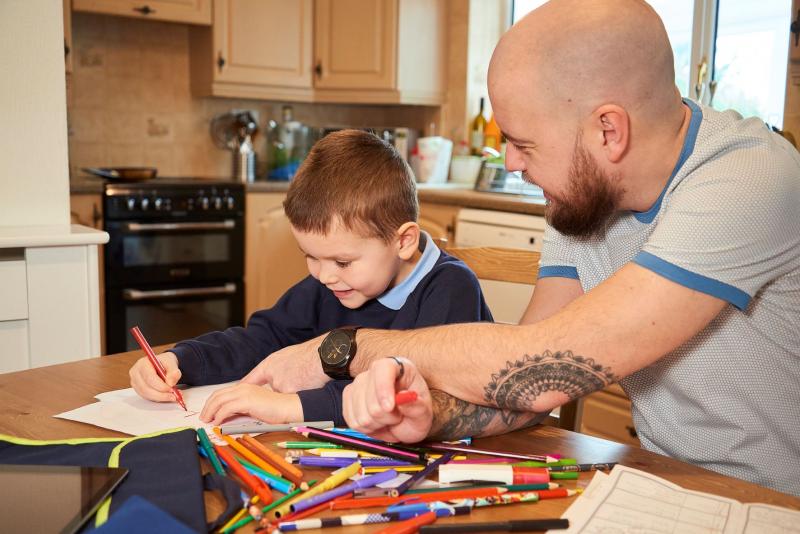The case for parental engagement has never been as clear as it is right now. Justin Robbins and Karen Dempster provide some practical tips for effective communication with parents.

Students are reportedly three months behind in their learning because of the Covid-19 pandemic, according to data published by NFER in September 2020. Add to this the impact on young people’s mental health, and it could start to feel like a crisis.
Yet the solution might be right in front of us. Research by John Hattie in 2008 found that ‘the effect of parental engagement over a student’s school career is equivalent to adding two or three years to that student’s education’.
Parental engagement is clearly not going to solve every issue created by the pandemic. Nevertheless, when families learn together, parents are generally more engaged with school, which has a positive impact on the student’s social and behavioural outcomes.
With nothing to lose and lots to gain, can your school afford not to take parental engagement seriously and build better relationships with parents?
In our book, The Four Pillars of Parental Engagement, our approach to parental engagement is based on the four pillars of knowledge, environment, culture and communication.
By working to strengthen these pillars, parental engagement can flourish.
Do parents understand the true impact they can have on their children by actively engaging with school? In our own experience, many parents are unaware of the real impact their support could achieve.
For those who want to help but are also time starved, how about giving them some minimum standards? Take time to consider what they should do every day, week or month.
Let parents know they are valued. According to our research, 49% of parents don’t feel valued by their children’s school. Not only does feeling valued contribute to better physical and mental health, it’s also more likely to encourage repeat behaviour.
At a more practical level, make sure parents know how to use school technology to access reports, register for events or respond to questions.
Ensure they know who to contact with a school-related query about their child.
Despite schools being places of learning, 26% of parents in our survey described the experience of going into their child’s school in negative terms. Check that your school is ‘parent friendly’ by asking a few parents to share their experiences of visiting your school.
It’s not just the physical school environment that matters. The home learning environment is equally important. Good educational habits at home will positively impact learning. Some parents need more support and guidance to create such an environment.
If you can create an open environment where ideas are shared and listening is encouraged, you will continually improve and build trusted relationships with parents at the same time.
The way that you do things drives your school culture. Encouraging positive feedback with parents and providing support will create a partnership culture between school and home.
Involving parents and students together creates an even stronger partnership. In fact, where family learning takes place, it is much more likely to lead to permanent behaviour change.
The partnership is further strengthened when parents are supported to become even more involved with school – for example as governors.
Our approach to school communication starts with listening. This means schools must first listen to parents to understand their needs and challenges.
In our research, only 25% of parents told us that schools listen to them extremely well. Simply asking parents ‘How could we improve communication with you?’ is a great place to start listening to them.
Most people today receive a constant flow of messages and notifications. These uncoordinated and random pings and beeps can often reflect how school communication feels to a parent. Managing the flow of information that reaches parents is a critical step.
How news is communicated can also be confusing. Meetings could often have been an email – precious face-to-face meeting time should be reserved for invaluable two-way discussions.
Offering simple tools to support parents who might be struggling to communicate with their own children, such as an ‘after-school communication checklist’, could help them to have a productive discussion with their child.
The case is clear, and the four pillars offer areas within which to focus. But where do you go from there?
Here are five simple steps to follow to develop the perfect partnership with parents.
Get the four pillars of parental engagement right and you won’t miss out on this pivotal opportunity to build the perfect partnership with parents.
Justin and Karen’s new book The Four Pillars of Parental Engagement: Empowering schools to connect better with parents and pupils (Independent Thinking Press, 2021) is out now.
Desforges, C. and Abouchaa, A. (2003). The Impact of Parental Involvement, Parental Support and Family Education on Pupil Achievement and Adjustment (Nottingham: Department for Education and Skills).
Hattie, J. (2008). Visible Learning: A Synthesis of Over 800 Meta-Analyses Relating to Achievement, 1st edn (Abingdon and New York: Routledge).
Public Health England (2021). Education, Schooling and Health Summary.
Save the Children (2020). Families and Schools Together.
Sharp C, Nelson J. et al. (2020). The Challenges Facing Schools and Pupils in September 2020 (Slough: NFER)